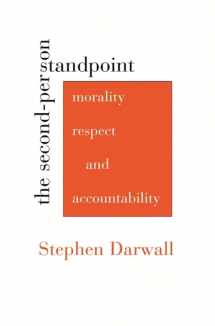
The Second-Person Standpoint: Morality, Respect, and Accountability
Book details
Summary
Description
Why should we avoid doing moral wrong? The inability of philosophy to answer this question in a compelling manner―along with the moral skepticism and ethical confusion that ensue―result, Stephen Darwall argues, from our failure to appreciate the essentially interpersonal character of moral obligation. After showing how attempts to vindicate morality have tended to change the subject―falling back on nonmoral values or practical, first-person considerations―Darwall elaborates the interpersonal nature of moral obligations: their inherent link to our responsibilities to one another as members of the moral community.
As Darwall defines it, the concept of moral obligation has an irreducibly second-person aspect; it presupposes our authority to make claims and demands on one another. And so too do many other central notions, including those of rights, the dignity of and respect for persons, and the very concept of person itself. The result is nothing less than a fundamental reorientation of moral theory that enables it at last to account for morality's supreme authority―an account that Darwall carries from the realm of theory to the practical world of second-person attitudes, emotions, and actions.


We would LOVE it if you could help us and other readers by reviewing the book
Book review





